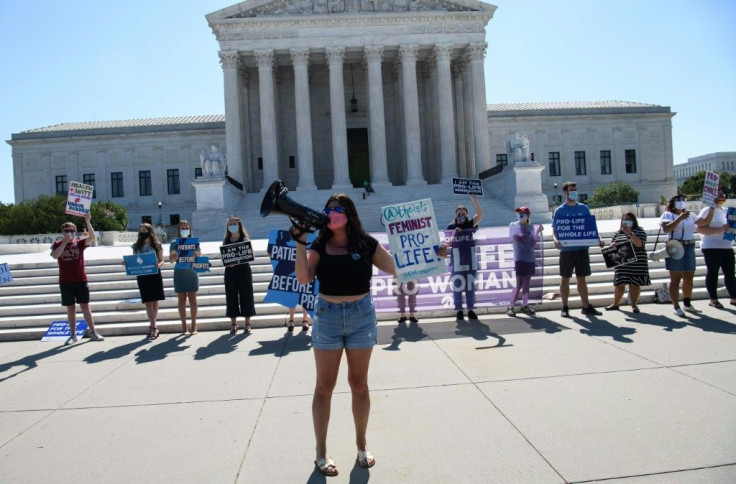Abortion Rights: Why The Supreme Court Struck Down A Controversial Louisiana Law On Clinic Restrictions
KEY POINTS
- The Supreme Court ruled the Louisiana law introduced in 2014 put a "substantial obstacle" in place for women seeking abortions
- Chief Justice John Roberts broke with the conservative judges, siding with the four liberal justices in striking down the law
- The conservatives judges all questioned the court's decision in their dissents while also questioning Roe v. Wade
In the first major abortion case ruling in Trump’s presidency, the Supreme Court struck down a Louisiana law that placed “undue” restrictions on women seeking abortions. The justices were split 5-4, with Chief Justice John Roberts breaking from the conservative justices to strike down the law.
The state law, which was passed in 2014, required doctors working at abortion clinics to have privileges at a hospital located within 30 miles of the clinic. It was first overturned by a federal district court judge in Louisiana before it was sent to the Fifth Circuit Court of Appeals, which reinstated the law.
Lousiana officials said the law was meant to protect women's health, saying it seeks to "improve abortion safety by means of doctor credentialing."
However, opponents argued the law would be used to impose restrictions on abortion clinics, possibly forcing several to close. The lower court judge agreed and overturned the law, saying only one clinic and one doctor would be available to perform abortions for the whole state.
Opponents pointed to a similar abortion law in Texas which was subsequently struck down by the Supreme Court as part of Whole Woman's Health v. Hellerstedt in 2016.
The court said there was “sufficient evidence” showing the privilege requirement led to nearly half of Texas’ abortion clinics closing. In turn, the number of “reproductive-age women” living around 150 miles away from the nearest clinic quadrupled.
Justice Stephen Breyer wrote the majority opinion for Medical Services LLC v. Russo and cited the 2016 Texas case.
“In this case, we consider the constitutionality of a Louisiana statute, Act 620, that is almost word-for-word identical to Texas’ admitting-privileges law. As in Whole Woman’s Health, the District Court found that the statute offers no significant health benefit. It found that conditions on admitting privileges common to hospitals throughout the State have made and will continue to make it impossible for abortion providers to obtain conforming privileges for reasons that have nothing to do with the State’s asserted interests in promoting women’s health and safety. And it found that this inability places a substantial obstacle in the path of women seeking an abortion.”
Roberts echoed Breyer’s opinion. He said while he did dissent to the decision in Whole Woman’s Health v. Hellerstedt, believing “the case was wrongly decided,” he said the question with this case was whether or not to adhere to the precedent set by Whole Women’s Health given the similarities.
“The Louisiana law imposes a burden on access to abortion just as severe as that imposed by the Texas law, for the same reasons,” Roberts said. “Therefore Louisiana’s law cannot stand under our precedents.”
The four conservative justices contributed dissenting opinions on the ruling while attacking Roe v. Wade.
“Roe is grievously wrong for many reasons, but the most fundamental is that its core holding—that the Constitution protects a woman’s right to abort her unborn child—finds no support in the text of the Fourteenth Amendment,” Justice Clarence Thomas said in his dissent.
White House Press Secretary Kayleigh McEnany also took aim at the decision.
“Instead of valuing fundamental democratic principles, unelected Justices have intruded on the sovereign prerogatives of State governments by imposing their own policy preference in favor of abortion to override legitimate abortion safety regulations,” McEnany said in a statement.

© Copyright IBTimes 2024. All rights reserved.





















